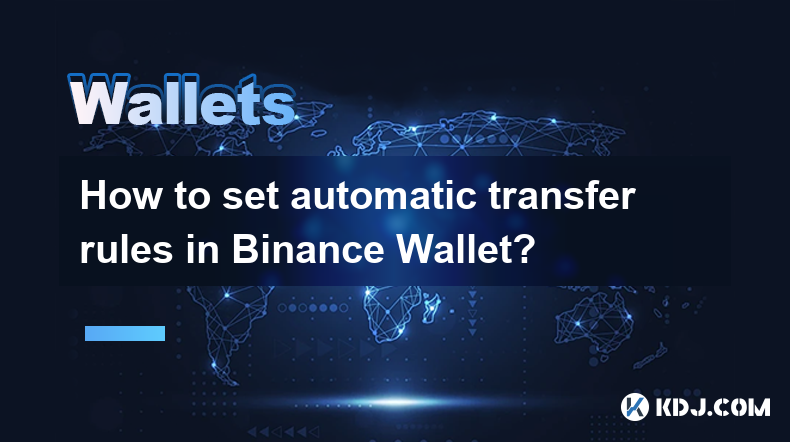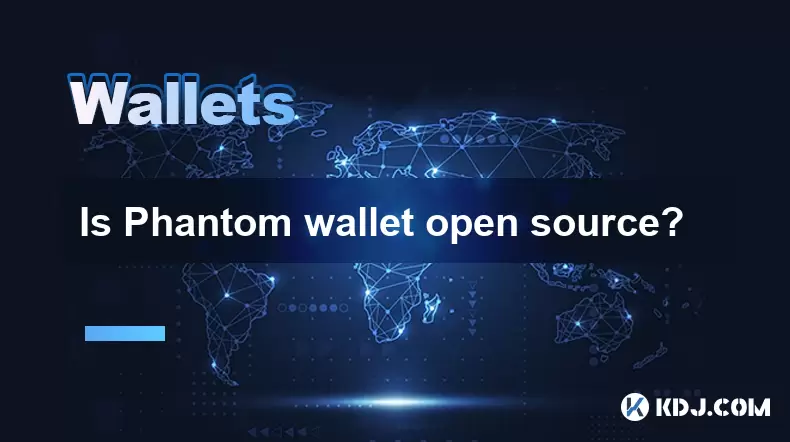-
 Bitcoin
Bitcoin $108,192.4840
-0.79% -
 Ethereum
Ethereum $2,520.0996
-1.16% -
 Tether USDt
Tether USDt $1.0002
-0.01% -
 XRP
XRP $2.2216
-0.44% -
 BNB
BNB $655.3498
-0.46% -
 Solana
Solana $148.0291
-1.58% -
 USDC
USDC $0.9999
0.00% -
 TRON
TRON $0.2831
-1.37% -
 Dogecoin
Dogecoin $0.1642
-1.68% -
 Cardano
Cardano $0.5748
-1.24% -
 Hyperliquid
Hyperliquid $39.4087
1.28% -
 Sui
Sui $2.9157
-0.36% -
 Bitcoin Cash
Bitcoin Cash $483.5621
0.38% -
 Chainlink
Chainlink $13.2143
-1.13% -
 UNUS SED LEO
UNUS SED LEO $9.0623
0.20% -
 Avalanche
Avalanche $17.8302
-1.40% -
 Stellar
Stellar $0.2374
-1.09% -
 Toncoin
Toncoin $2.7496
-2.20% -
 Shiba Inu
Shiba Inu $0.0...01147
-0.83% -
 Hedera
Hedera $0.1557
0.09% -
 Litecoin
Litecoin $86.3775
-1.75% -
 Monero
Monero $312.5454
-2.83% -
 Polkadot
Polkadot $3.3663
-2.25% -
 Dai
Dai $1.0000
0.01% -
 Ethena USDe
Ethena USDe $1.0001
0.00% -
 Bitget Token
Bitget Token $4.4127
-1.15% -
 Uniswap
Uniswap $6.9598
-5.53% -
 Pepe
Pepe $0.0...09815
0.25% -
 Aave
Aave $270.5779
0.33% -
 Pi
Pi $0.4678
-3.14%
How to set automatic transfer rules in Binance Wallet?
Binance Wallet lacks built-in automated transfer rules; however, third-party tools or the Binance API offer workarounds, demanding technical expertise and careful security practices to avoid fund loss.
Mar 19, 2025 at 06:18 am

Key Points:
- Binance Wallet doesn't directly support setting fully automated transfer rules in the same way some other platforms might. Automation is limited.
- You can achieve a degree of automation using third-party tools or by utilizing Binance's API. This requires technical knowledge.
- Security is paramount when automating cryptocurrency transfers. Never use compromised or insecure methods.
- Understanding the limitations of automation is crucial to avoid unexpected issues and potential losses.
- Alternative methods, such as manual transfers or using a different platform with more robust automation features, should be considered.
How to Set (Semi-)Automatic Transfer Rules in Binance Wallet?
Binance Wallet, unlike some centralized exchanges, doesn't offer a built-in feature to automatically transfer cryptocurrencies based on predefined rules like price triggers or time schedules. This is a key difference to note. While you can't directly set up "if-this-then-that" style automation within the wallet itself, there are workarounds, although they require a higher level of technical understanding and carry inherent risks.
Using Third-Party Tools:
Several third-party applications and services claim to offer automated trading and transfer functionalities for Binance and other exchanges. However, it’s crucial to exercise extreme caution when using these tools. Thoroughly research any third-party application before granting it access to your Binance account. Always verify the legitimacy and security of the tool. Improperly secured third-party tools pose significant security risks. Compromised applications could lead to the loss of your funds.
Utilizing the Binance API:
Binance provides an Application Programming Interface (API) that allows developers to interact programmatically with their exchange. Using the API, you can build custom scripts or applications to automate transfers based on specific conditions. This approach demands significant programming knowledge and understanding of the Binance API documentation. Improper use of the API could result in unintended consequences.
- Step 1: Understand the Binance API: Familiarize yourself with the API documentation, endpoints, and authentication methods. This requires significant technical expertise.
- Step 2: Choose a Programming Language: Select a suitable programming language (like Python) to build your automation script. Python is often preferred for its extensive libraries.
- Step 3: Create an API Key: Generate a unique API key and secret key within your Binance account. Never share these keys with anyone.
- Step 4: Develop Your Script: Write a script that interacts with the Binance API to monitor your balances and execute transfers based on your defined rules. This involves complex coding.
- Step 5: Test Thoroughly: Test your script rigorously in a simulated environment before using it with real funds. Thorough testing is critical to avoid costly mistakes.
- Step 6: Deploy and Monitor: Deploy your script to a secure server and monitor its performance closely. Constant monitoring is essential to detect and correct any errors.
Security Considerations:
Security is paramount when automating any financial transactions, especially with cryptocurrencies. Always use strong, unique passwords and enable two-factor authentication (2FA) on your Binance account. Limit the permissions granted to any API keys and revoke them immediately if you suspect any compromise. Regularly review your account activity for any suspicious transactions.
Limitations of Automation:
It's essential to understand that complete automation of cryptocurrency transfers on Binance Wallet is not readily available. Any automation achieved through third-party tools or the API will have inherent limitations and potential risks. Network congestion, API rate limits, and unexpected changes to Binance's platform can all disrupt automated processes.
Alternative Methods:
If you require regular transfers, consider setting up recurring manual transfers. This method eliminates the complexities and risks associated with automated solutions. Alternatively, explore other cryptocurrency platforms that offer more sophisticated automated transfer functionalities.
Frequently Asked Questions:
Q: Can I set up automated transfers based on price fluctuations in Binance Wallet?
A: No, Binance Wallet does not have a built-in function for price-triggered automated transfers. You could potentially use the API, but this requires significant programming skills and carries considerable risk.
Q: Are there any readily available tools to automate transfers from my Binance Wallet?
A: While some third-party tools claim to offer such functionality, they should be approached with extreme caution. Always verify their legitimacy and security before granting access to your account.
Q: How secure is using the Binance API for automation?
A: Using the Binance API for automation introduces security risks if not implemented correctly. Securely managing your API keys, using strong authentication, and thoroughly testing your scripts are crucial for minimizing these risks.
Q: What happens if the Binance API experiences downtime?
A: If the Binance API experiences downtime, any automated transfer scripts relying on it will be interrupted. This highlights the unreliability of complete automation via this method.
Q: Is there a safer alternative to automating transfers from Binance Wallet?
A: Manually transferring your cryptocurrencies regularly is a safer alternative, eliminating the risks associated with automated systems and third-party tools. Consider platforms offering built-in automation if that feature is crucial to your needs.
Disclaimer:info@kdj.com
The information provided is not trading advice. kdj.com does not assume any responsibility for any investments made based on the information provided in this article. Cryptocurrencies are highly volatile and it is highly recommended that you invest with caution after thorough research!
If you believe that the content used on this website infringes your copyright, please contact us immediately (info@kdj.com) and we will delete it promptly.
- Bitcoin's Pattern Break: Are HODLers the Key to the Next Surge?
- 2025-07-04 18:50:12
- Bitcoin Price, Trump's Bill, and the $150K Dream: A NYC Take
- 2025-07-04 19:50:12
- Ethereum, LILPEPE, and the July Bounce: Will Pepe Steal ETH's Thunder?
- 2025-07-04 19:10:12
- Binance Institutional Loans: Unlocking 4x Leverage and Zero Interest for Whales
- 2025-07-04 19:15:12
- Bitcoin Bull Run: Analysts Eye Peak in Late 2025?
- 2025-07-04 19:20:13
- Pepe Indicators, Bullish Forecast: Can the Meme Coin Rally?
- 2025-07-04 19:25:12
Related knowledge

How to cancel a pending transaction in Phantom wallet?
Jul 03,2025 at 07:21pm
Understanding Pending Transactions in Phantom WalletA pending transaction in the Phantom wallet occurs when a user initiates a transfer or interaction with the Solana blockchain, but it hasn't yet been confirmed by the network. This can happen due to various reasons such as low transaction fees, network congestion, or incorrect gas settings. It's import...

How to see the estimated value of my tokens in Phantom wallet?
Jul 04,2025 at 12:21am
What is Phantom Wallet?Phantom wallet is one of the most popular cryptocurrency wallets designed for the Solana blockchain. It allows users to store, send, receive, and manage various tokens built on Solana, including SPL tokens and NFTs. The wallet offers a user-friendly interface, making it accessible for both beginners and advanced users in the crypt...

How to lock my Phantom wallet extension?
Jul 03,2025 at 11:14am
What Is the Phantom Wallet and Why Lock It?The Phantom wallet is a popular non-custodial cryptocurrency wallet designed for interacting with the Solana blockchain. Supporting both browser extensions and mobile apps, Phantom allows users to store, send, receive, and stake SOL tokens, as well as interact with decentralized applications (dApps). Securing y...

Does Phantom wallet offer two-factor authentication (2FA)?
Jul 03,2025 at 09:00am
Understanding Phantom Wallet and Its Security FeaturesPhantom wallet is a widely used non-custodial cryptocurrency wallet that supports the Solana blockchain. It allows users to store, send, receive, and interact with decentralized applications (dApps) seamlessly. As security is a top priority for any crypto wallet user, security features like two-facto...

What is "rent" on Solana and how does it affect my Phantom wallet?
Jul 02,2025 at 08:35pm
Understanding 'Rent' on SolanaIn the context of Solana, the term 'rent' refers to a storage fee that users pay for maintaining data on the blockchain. Unlike Ethereum, where storage costs are paid once via gas fees during contract deployment, Solana implements a recurring cost model to ensure efficient usage of network resources. This means that any acc...

Is Phantom wallet open source?
Jul 03,2025 at 12:29am
What is Phantom Wallet?Phantom wallet is a non-custodial cryptocurrency wallet primarily designed for the Solana blockchain. It allows users to store, send, receive, and interact with decentralized applications (dApps) on the Solana network. The wallet is available as a browser extension and mobile application, offering a seamless experience for both be...

How to cancel a pending transaction in Phantom wallet?
Jul 03,2025 at 07:21pm
Understanding Pending Transactions in Phantom WalletA pending transaction in the Phantom wallet occurs when a user initiates a transfer or interaction with the Solana blockchain, but it hasn't yet been confirmed by the network. This can happen due to various reasons such as low transaction fees, network congestion, or incorrect gas settings. It's import...

How to see the estimated value of my tokens in Phantom wallet?
Jul 04,2025 at 12:21am
What is Phantom Wallet?Phantom wallet is one of the most popular cryptocurrency wallets designed for the Solana blockchain. It allows users to store, send, receive, and manage various tokens built on Solana, including SPL tokens and NFTs. The wallet offers a user-friendly interface, making it accessible for both beginners and advanced users in the crypt...

How to lock my Phantom wallet extension?
Jul 03,2025 at 11:14am
What Is the Phantom Wallet and Why Lock It?The Phantom wallet is a popular non-custodial cryptocurrency wallet designed for interacting with the Solana blockchain. Supporting both browser extensions and mobile apps, Phantom allows users to store, send, receive, and stake SOL tokens, as well as interact with decentralized applications (dApps). Securing y...

Does Phantom wallet offer two-factor authentication (2FA)?
Jul 03,2025 at 09:00am
Understanding Phantom Wallet and Its Security FeaturesPhantom wallet is a widely used non-custodial cryptocurrency wallet that supports the Solana blockchain. It allows users to store, send, receive, and interact with decentralized applications (dApps) seamlessly. As security is a top priority for any crypto wallet user, security features like two-facto...

What is "rent" on Solana and how does it affect my Phantom wallet?
Jul 02,2025 at 08:35pm
Understanding 'Rent' on SolanaIn the context of Solana, the term 'rent' refers to a storage fee that users pay for maintaining data on the blockchain. Unlike Ethereum, where storage costs are paid once via gas fees during contract deployment, Solana implements a recurring cost model to ensure efficient usage of network resources. This means that any acc...

Is Phantom wallet open source?
Jul 03,2025 at 12:29am
What is Phantom Wallet?Phantom wallet is a non-custodial cryptocurrency wallet primarily designed for the Solana blockchain. It allows users to store, send, receive, and interact with decentralized applications (dApps) on the Solana network. The wallet is available as a browser extension and mobile application, offering a seamless experience for both be...
See all articles

























































































